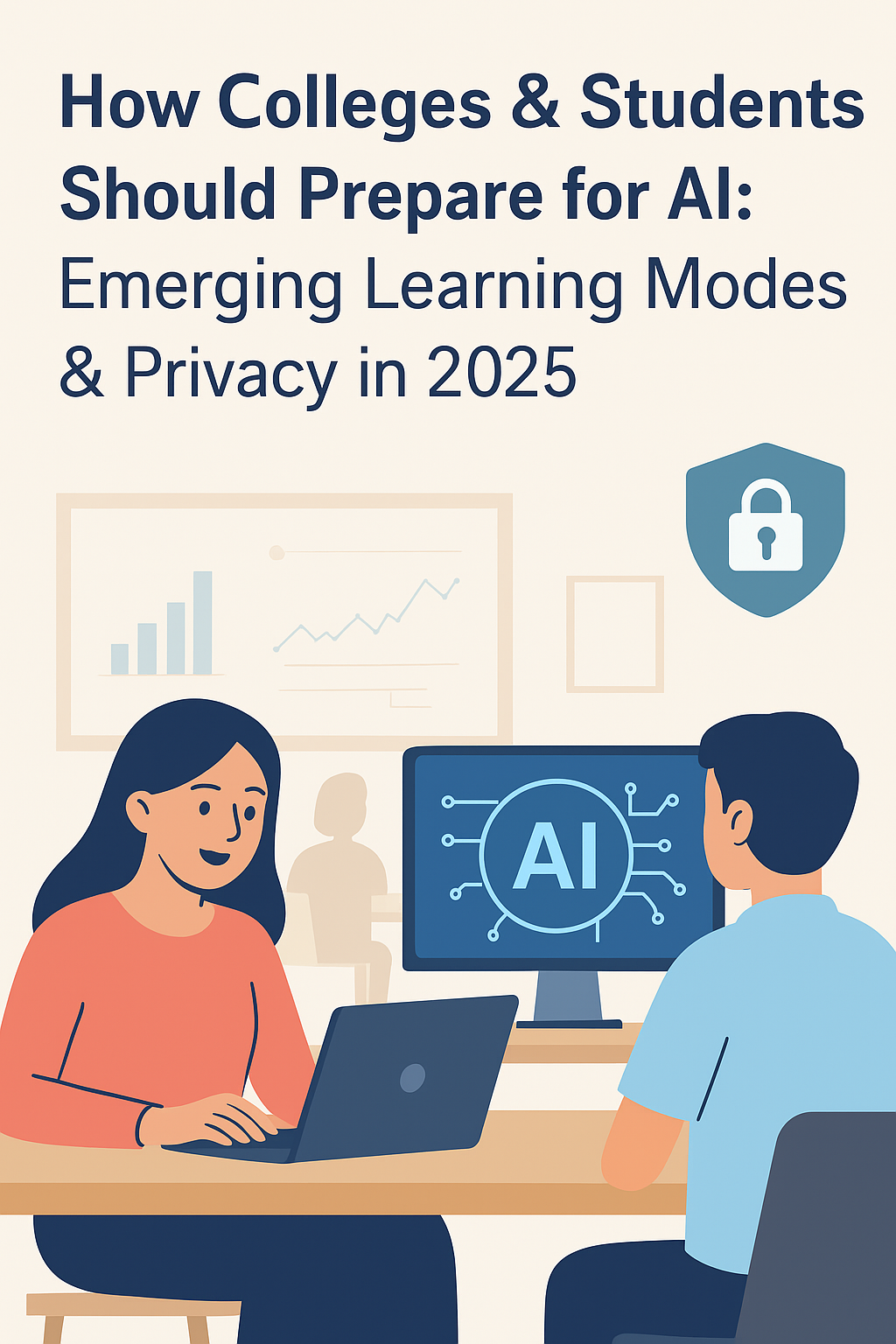The integration of AI in education is accelerating at a rapid pace, reshaping the way students learn and colleges teach. By 2025, both institutions and learners will need to adapt to emerging learning modes while carefully navigating concerns like student privacy and ethical use of AI. In this article, we’ll explore how colleges can prepare their campuses, how students can leverage AI learning tools effectively, and what privacy measures are crucial in a world increasingly powered by AI.
Understanding the Rise of AI in Education
Artificial Intelligence is no longer a futuristic concept in education—it is a current reality. From intelligent tutoring systems to automated grading, AI technologies are providing personalized learning experiences that were once unimaginable. Colleges are implementing AI-driven platforms to analyze student performance, predict learning outcomes, and offer adaptive learning paths. Students, on the other hand, can now use AI learning tools to enhance study habits, prepare for exams, and explore new subjects efficiently.
AI in education empowers students to learn at their own pace. Platforms like ChatGPT, Quizlet AI, and adaptive course software analyze learning patterns, suggesting resources tailored to individual needs. This not only improves retention but also reduces the stress associated with traditional one-size-fits-all learning models.

Emerging Learning Modes in 2025
The classroom of 2025 is evolving beyond traditional lectures. Several emerging learning modes are becoming prevalent:
- Adaptive Learning Platforms: AI systems adjust content difficulty and style based on individual student performance.
- Gamified Learning: AI-powered educational games make learning interactive, increasing engagement and retention.
- Virtual and Augmented Reality: Immersive learning experiences simulate real-world scenarios for practical skill development.
- Collaborative AI Tools: Platforms enable group projects and peer-to-peer learning using AI-assisted collaboration features.
- AI Tutoring and Mentoring: Virtual tutors provide personalized feedback and 24/7 support for students.

How Colleges Can Prepare for AI Integration
For colleges, preparing for AI involves more than installing software. Institutions must develop strategies for technology adoption, faculty training, and ethical policies. Here are key steps:
- Invest in AI Learning Tools: Adopt platforms that personalize learning, track performance, and enhance student engagement.
- Faculty Training Programs: Ensure instructors understand AI capabilities and can integrate them effectively into coursework.
- Data Privacy Policies: Protect student data by complying with regulations like GDPR or FERPA.
- AI Ethics Committees: Establish committees to oversee ethical AI use, ensuring fair and unbiased algorithms.
- Infrastructure Upgrades: Upgrade networks and devices to support AI-driven platforms and immersive learning technologies.
Students: Adapting to AI Learning Tools
Students play a crucial role in making AI integration successful. Understanding how to use AI tools responsibly can lead to better learning outcomes:
- Leverage AI Tutors: Tools like ChatGPT or Khan Academy AI can provide explanations, practice exercises, and instant feedback.
- Time Management Apps: AI-powered planners help organize study schedules and prioritize assignments.
- Collaborative Platforms: Use AI for group projects, peer reviews, and brainstorming sessions.
- Privacy Awareness: Learn how personal data is collected, stored, and protected when using AI learning tools.
- Critical Thinking: AI is an assistant, not a replacement—students must evaluate AI-generated suggestions critically.

Privacy Concerns and Ethical Considerations
As AI collects massive amounts of data, student privacy becomes a top concern. Colleges and students must address:
- Data Security: Implement encryption, secure servers, and restricted access to sensitive student data.
- Informed Consent: Students should understand how their data is used and have the option to opt-out.
- Bias Prevention: Monitor AI systems for biased recommendations that could affect grading or learning outcomes.
- Transparency: Institutions should disclose AI capabilities and limitations, ensuring students understand the technology.
- Regular Audits: Conduct periodic evaluations to maintain ethical and secure AI usage.
Looking Ahead: The Future of AI in Colleges
The next decade will see deeper AI integration in education. Colleges may offer fully AI-driven courses, virtual labs, and automated administrative systems. Students prepared to work with AI responsibly will have a competitive advantage, benefiting from personalized learning paths and enhanced problem-solving skills.
To succeed in this AI-powered educational landscape, institutions and learners must stay informed, experiment with new tools, and prioritize ethics and privacy. Adapting early will make the 2025 academic environment more efficient, engaging, and secure.
Are you ready to explore AI learning tools and prepare for the future? Start experimenting with AI platforms today and share your experiences in the comments below!
For more tips on how students can leverage AI to boost their learning and productivity, check out our previous article: The Best AI Tools for Students in 2025: Boost Your Study Efficiency and Productivity.

